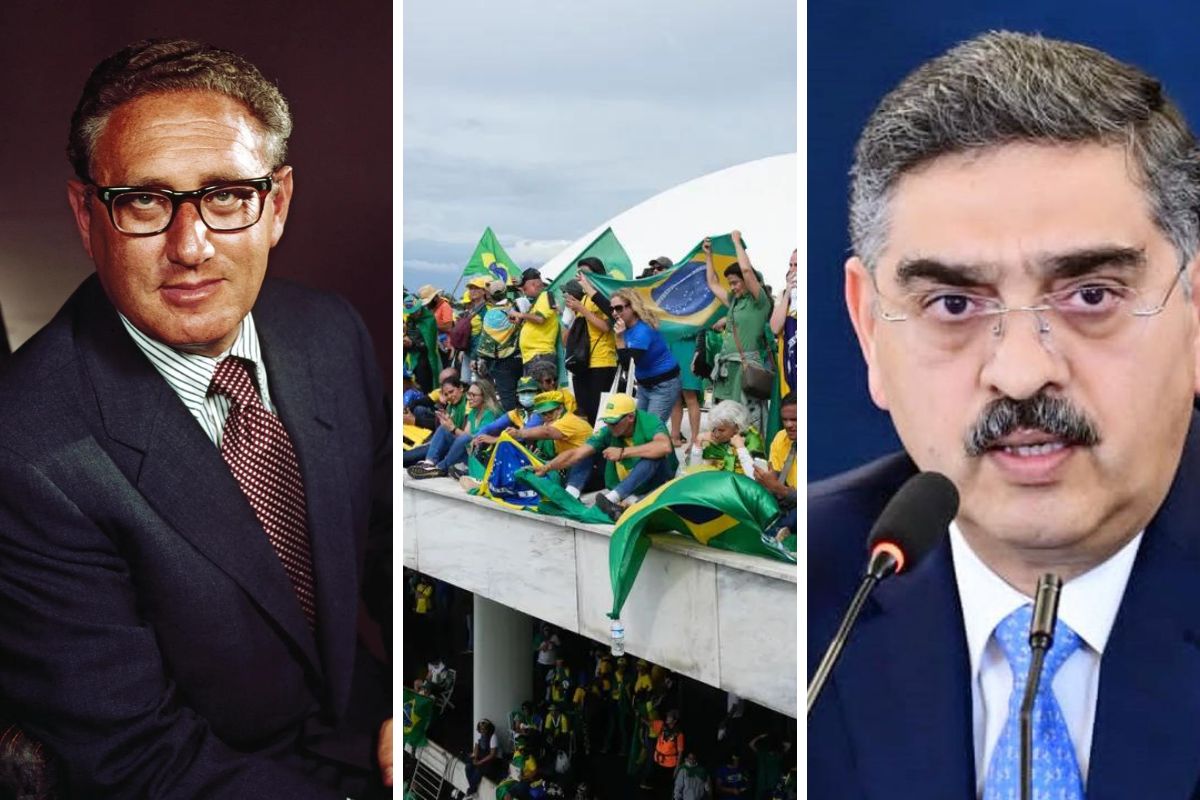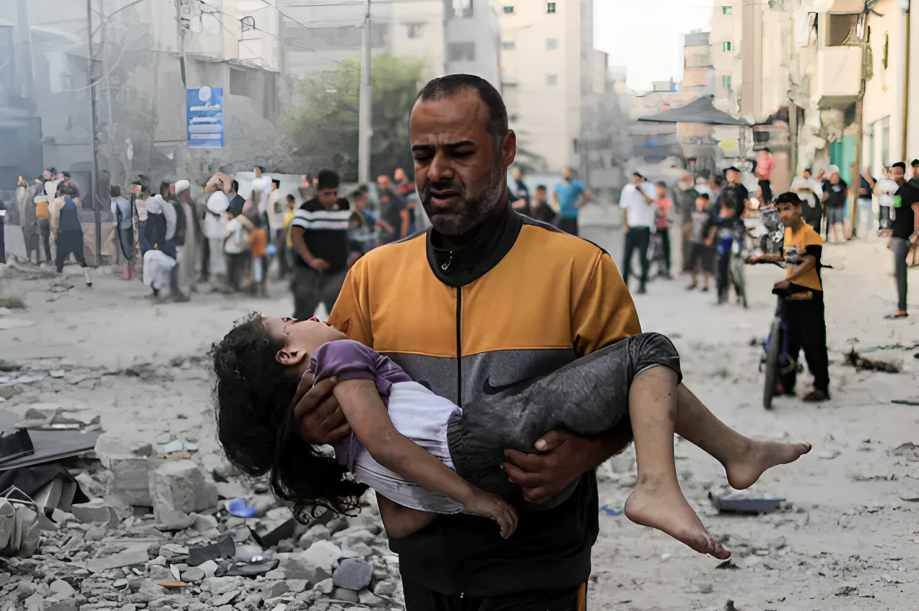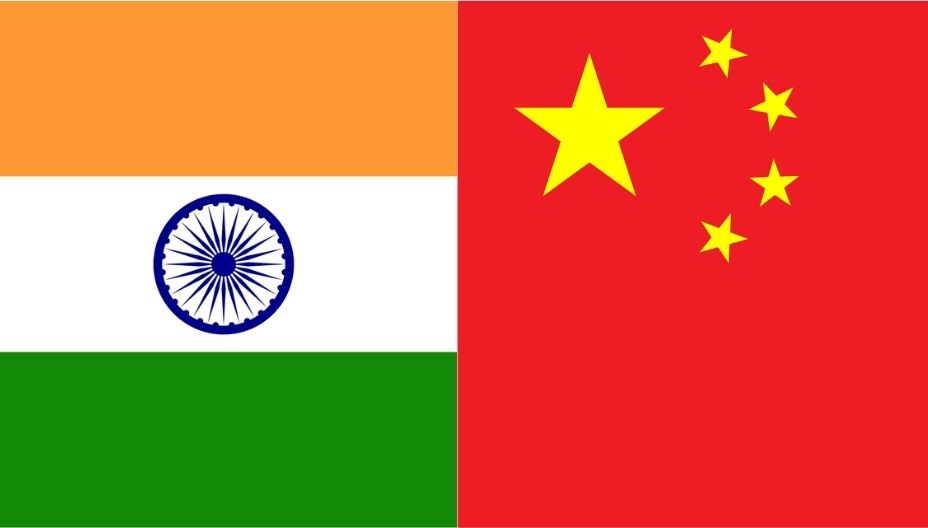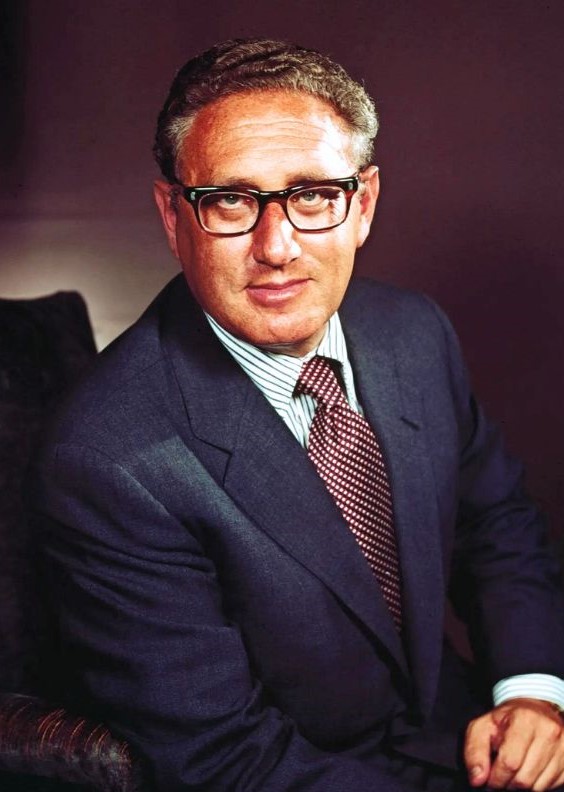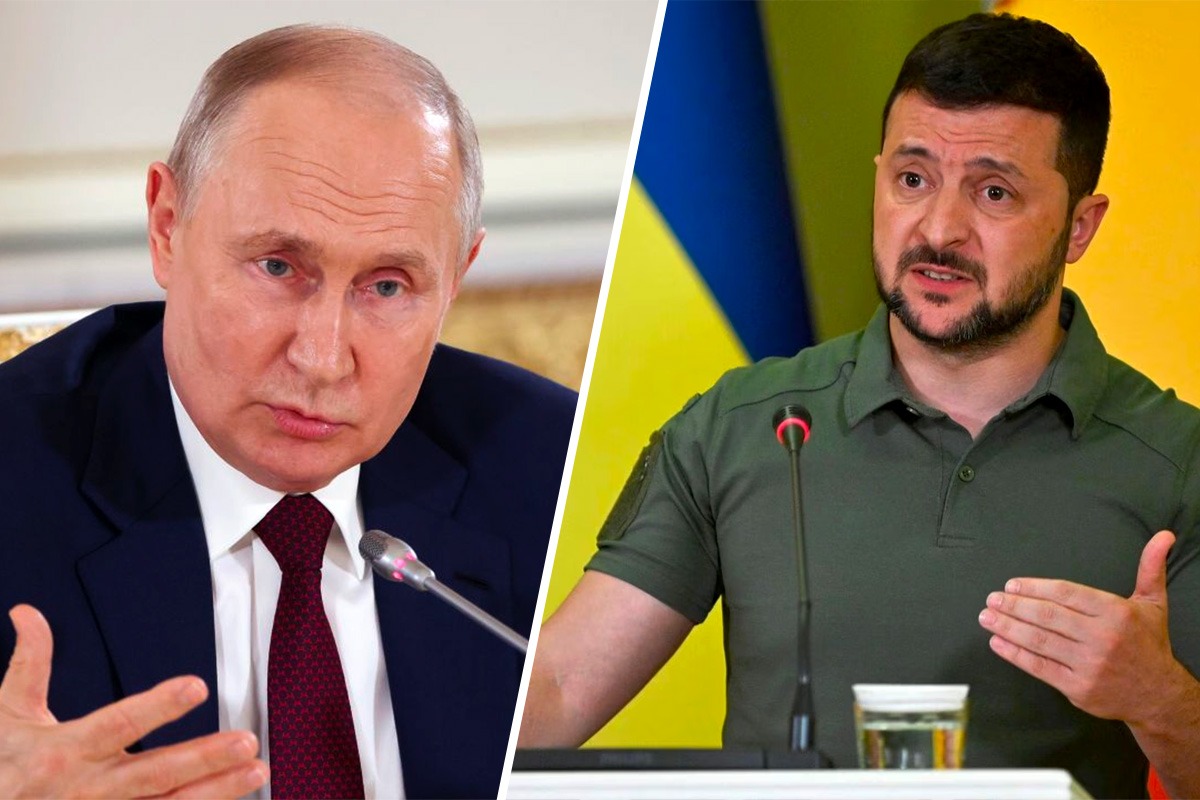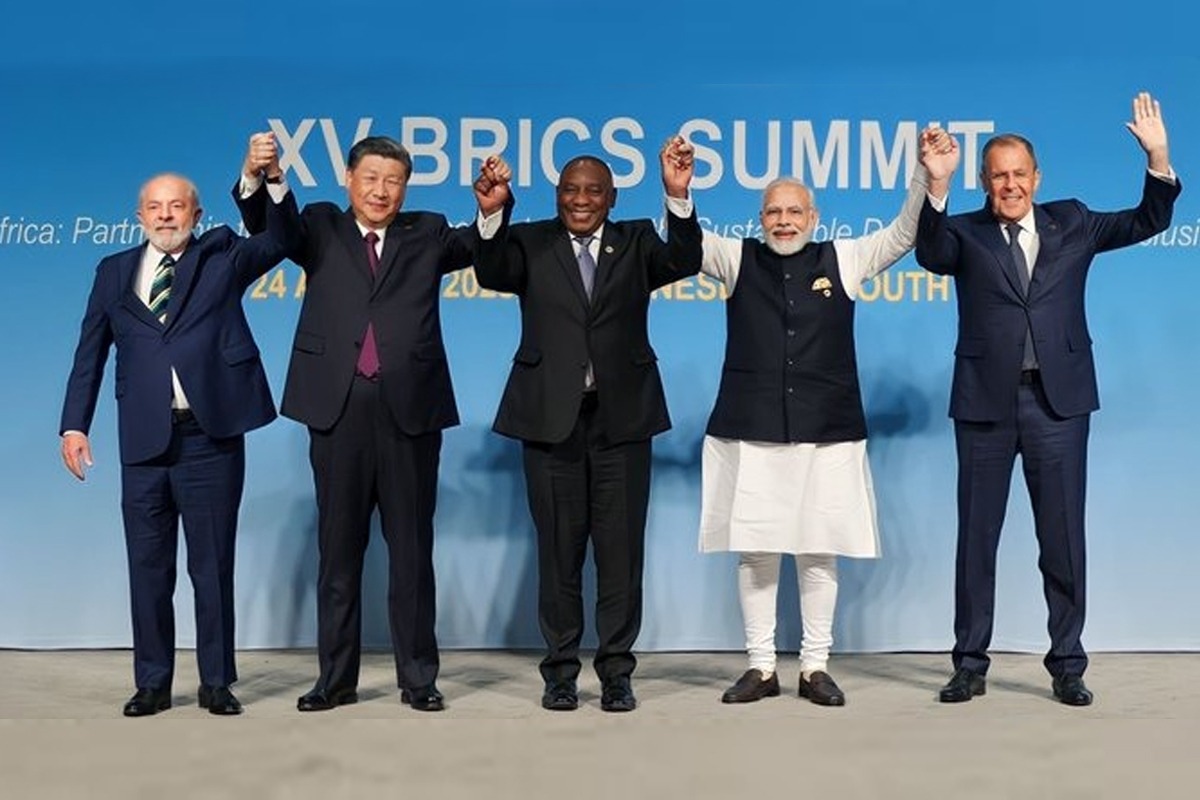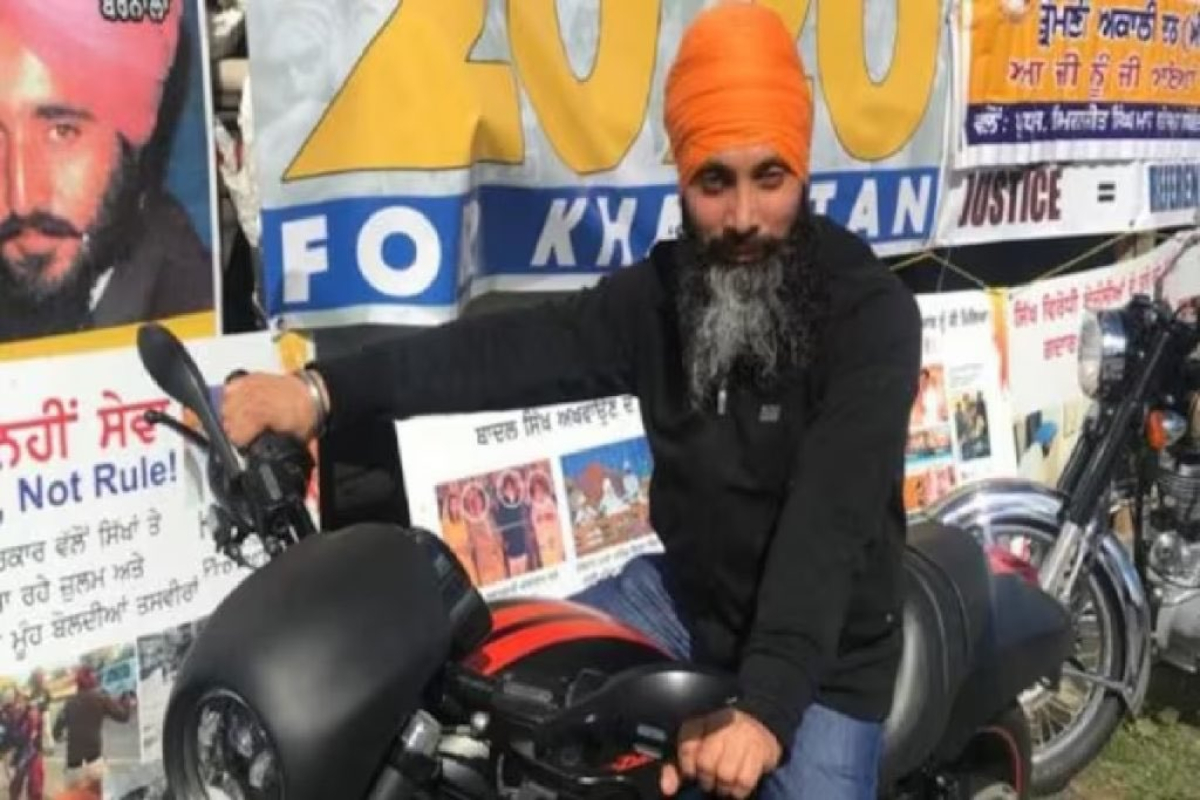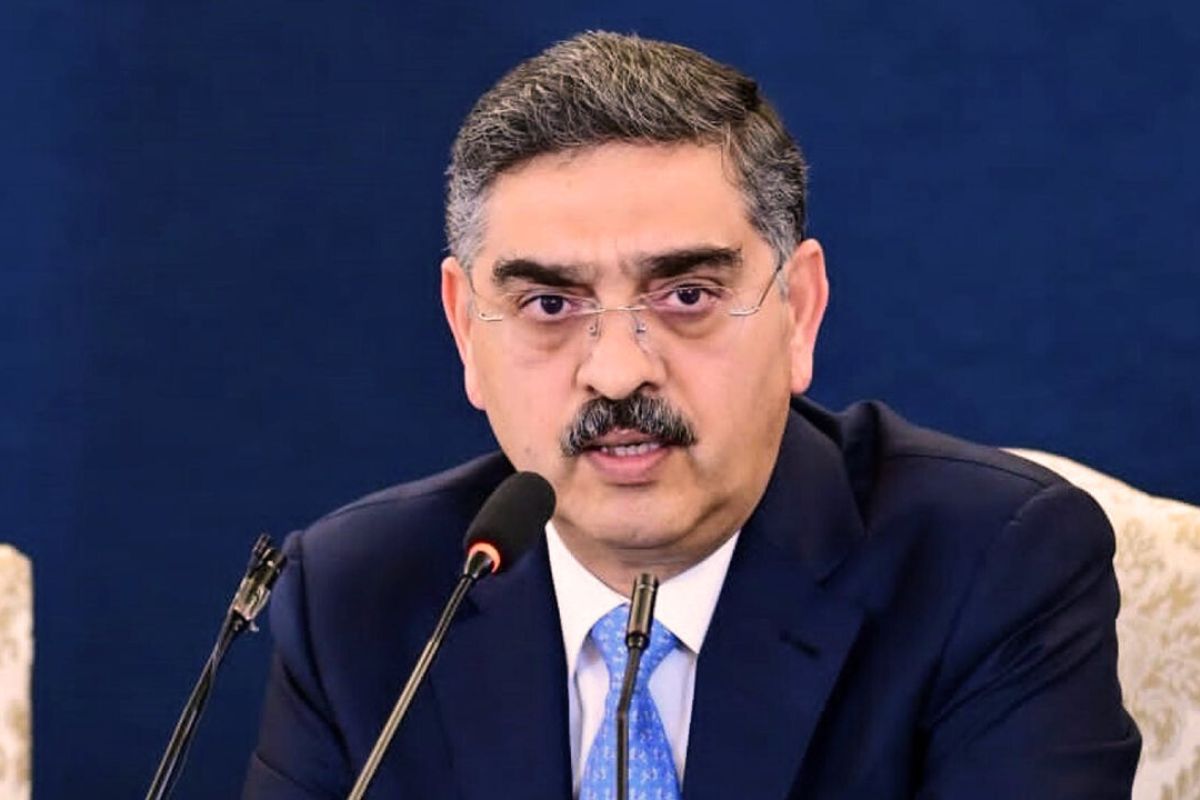NEW DELHI: Old conflicts continued, and fresh ones emerged, escalating geopolitical rivalries to the extent that a summit between opposing heads of state garnered significant attention, despite yielding minimal concrete results. Overall, positive developments remained scarce. Therefore, here are the top ten global events of 2023. It is advisable to scrutinize the following closely, as numerous narratives are poised to extend into 2024 and beyond.
1. Israel-Hamas war
On October 7 Hamas attacked Israel, resulting in the deadliest day in Israel’s history with approximately 1,200 casualties and 240 hostages. Israel responded with airstrikes and an invasion of northern Gaza. While a brief pause secured the release of hostages, renewed fighting, especially in southern Gaza, sparked global concerns about potential war crimes. Initially supporting Israel, President Joe Biden later urged greater protection for civilians, emphasizing the evolving nature of the conflict. As the year ended, the fear of a broader Middle East war persisted, leaving the resolution and aftermath of the conflict uncertain.
2. G20
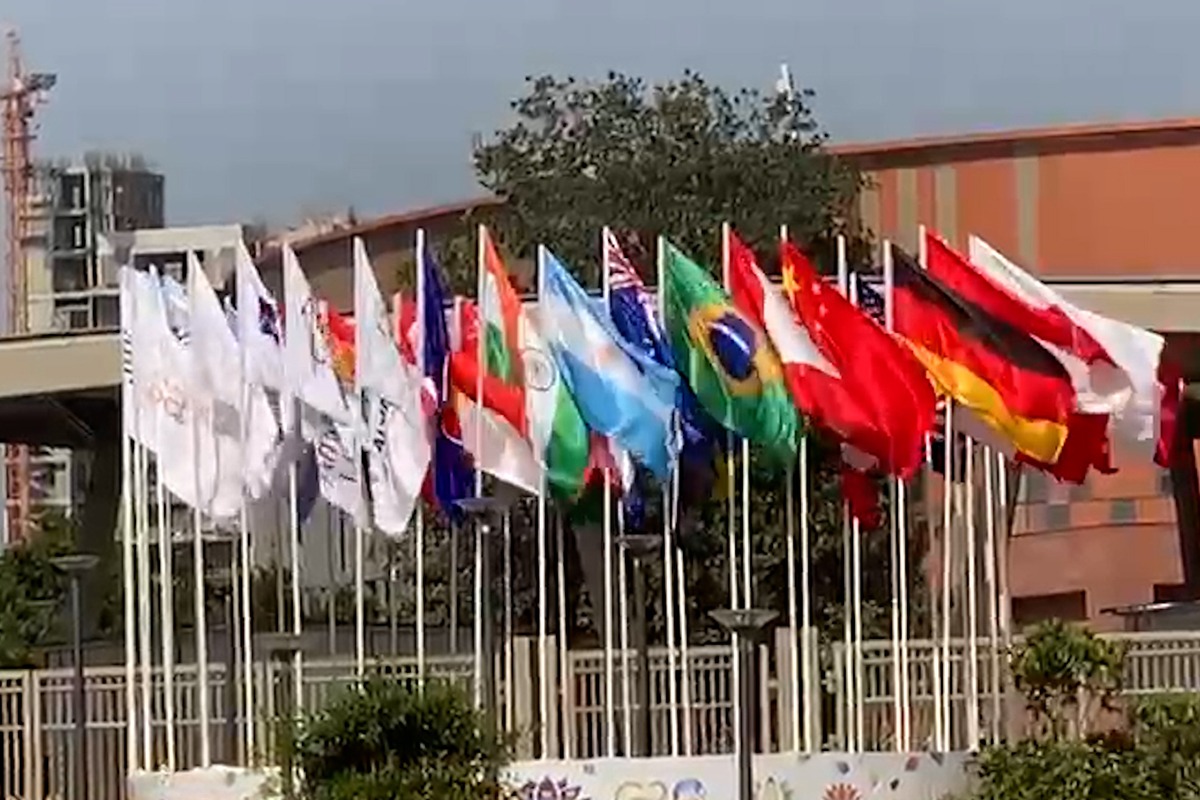
This year, India took over the G20 presidency from Indonesia, assuming leadership during challenging times. The global economic forecast for the upcoming year is grim, influenced by a resurgence of Covid and the persistent Russia-Ukraine conflict. Throughout 2023, more than 200 meetings will convene across India, providing a platform for representatives from various countries to address pressing global issues. The focal point of India’s presidency will be the G20 world leaders’ summit scheduled for December 2023 in New Delhi, offering a unique opportunity for India to assert itself on the international stage.
3. COP28
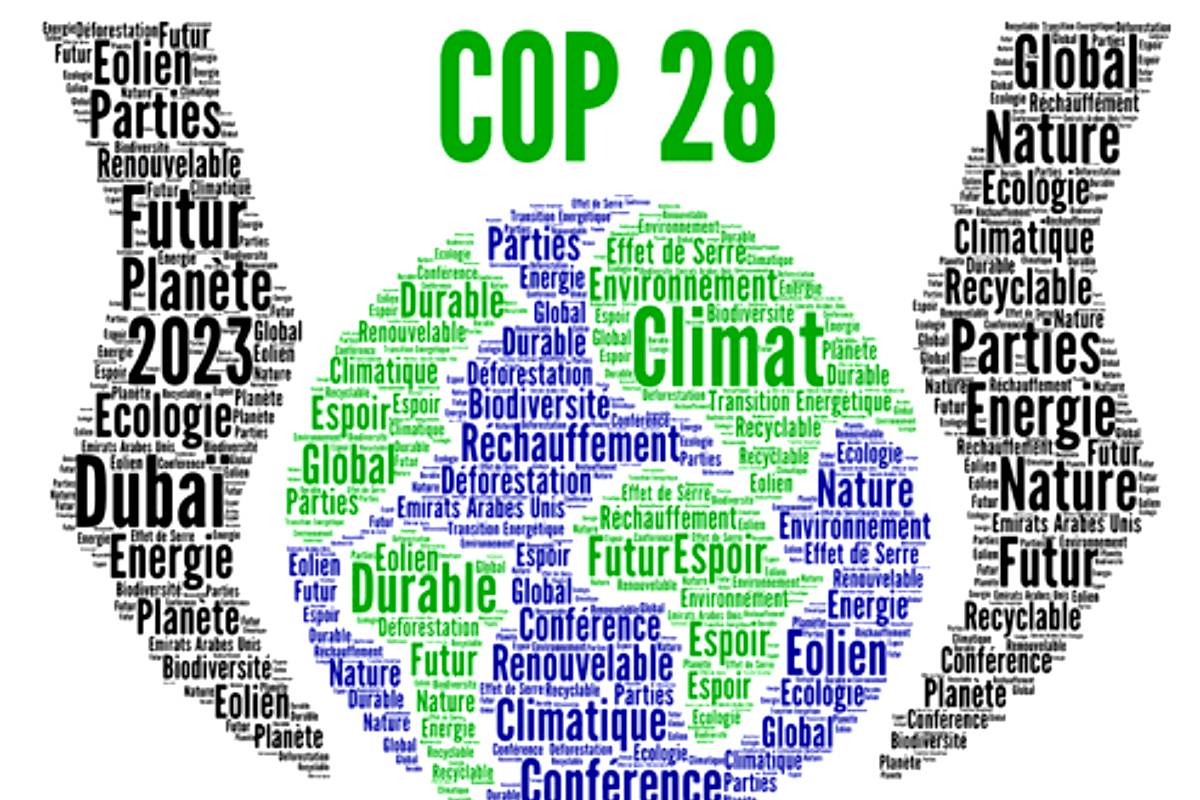
The United Arab Emirates (UAE) hosted the UN Climate Change Conference (COP 28). The annual climate summit took place from November 30 to December 12, 2023, with over 70,000 delegates in attendance. The primary objective of COP28 was to expedite the energy transition and substantially reduce emissions. Officially, COP 28 stood for the 28th meeting of the Conference of the Parties (COP) to the UN Framework Convention on Climate Change (UNFCCC). It took place every year and was the world’s only multilateral decision-making forum on climate change with almost complete membership of every country in the world.
4. Civil war wracks Sudan

Sudan’s democratic transition took an unexpected turn, leading to a civil war instead. The conflict originated from protests that prompted the military to overthrow longtime dictator Omar al-Bashir in April 2019. Subsequent agreements between the military junta and civilian groups aimed at power-sharing and elections were disrupted in October 2021 by another coup led by Abdel Fattah al-Burhan and Mohamed Hamdan “Hemedti” Dagalo. Despite an initial commitment to a two-year transition to civilian rule, tensions escalated. On April 15, 2023, RSF forces attacked SAF bases, leading to widespread conflict. Efforts to negotiate a ceasefire failed, resulting in RSF control over Khartoum and SAF control over Port Sudan. The conflict, marked by heavy fighting in Darfur, caused significant casualties and displaced millions by the year’s end, underscoring the challenges to Sudan’s stability.
5. Azerbaijan seizes Nagorno-Karabak
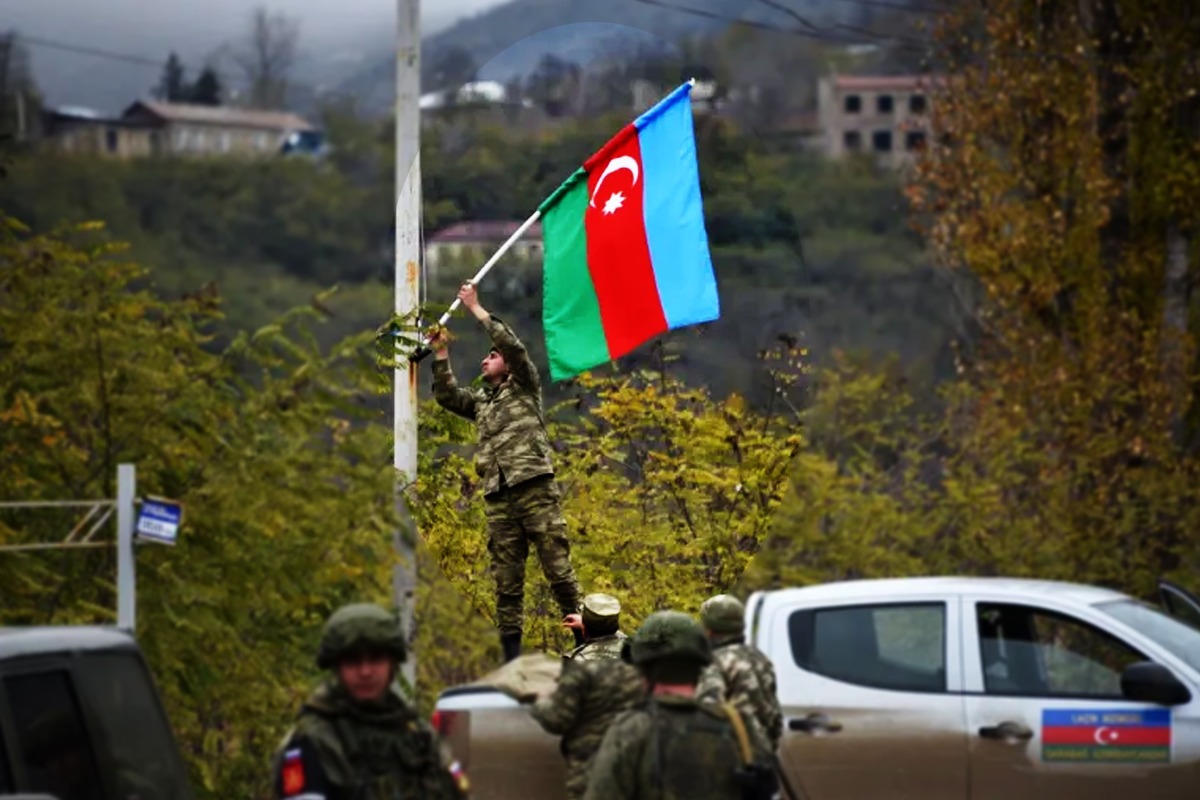
The Nagorno-Karabakh enclave in Azerbaijan was predominantly inhabited by ethnic Armenians who resisted governance by Baku. In 1991, Nagorno-Karabakh declared independence, leading to a war between Armenia and Azerbaijan. The conflict ended in 1994 with a Russian-brokered ceasefire, granting Nagorno-Karabakh de facto independence and seizing a portion of Azerbaijani territory. While the ceasefire held until September 2020, renewed hostilities resulted in Russia brokering another ceasefire, leaving Azerbaijan in control of much of Nagorno-Karabakh. Tensions persisted, leading to Azerbaijan’s attack in September 2023, causing a mass exodus of Armenians to Armenia. This raised concerns about the safety of the remaining Armenians in Nagorno-Karabakh and potential flashpoints between Armenia and Azerbaijan, including the Zangezur Corridor.
6. India passes China as the world’s most populous country
In 2023, India surpassed China as the world’s most populous nation, boasting an estimated 1.43 billion people. Projections indicate that India will likely maintain this status for decades, while China faces population decline and ageing. With a demographic advantage, India’s younger population is seen as a potential economic engine. In contrast, China confronts the challenge of balancing social safety net investments against other priorities. The concept of a “demographic dividend” in India suggests that its youthful workforce could drive significant economic growth, but effective policymaking remains crucial, akin to playing the right cards in a game of poker.
Also Read: Amit Shah questions Trudeau on harbouring terrorists in Canada
7. Brazilian Congress attack
On Monday, Brazil faced turmoil as hundreds of supporters of former leader Jair Bolsonaro stormed the seats of power in Brasilia, causing widespread damage and drawing condemnation both domestically and internationally. Over a thousand individuals were arrested, with Brazilian Justice Minister Flavio Dino reporting about 1,500 arrests in Brasilia since the Sunday riots. These incidents occurred a week after the inauguration of Lula da Silva, marking his return to power after a 12-year hiatus, following a victory over Bolsonaro in a runoff election on October 30.
8. Jacinda Ardern leave office
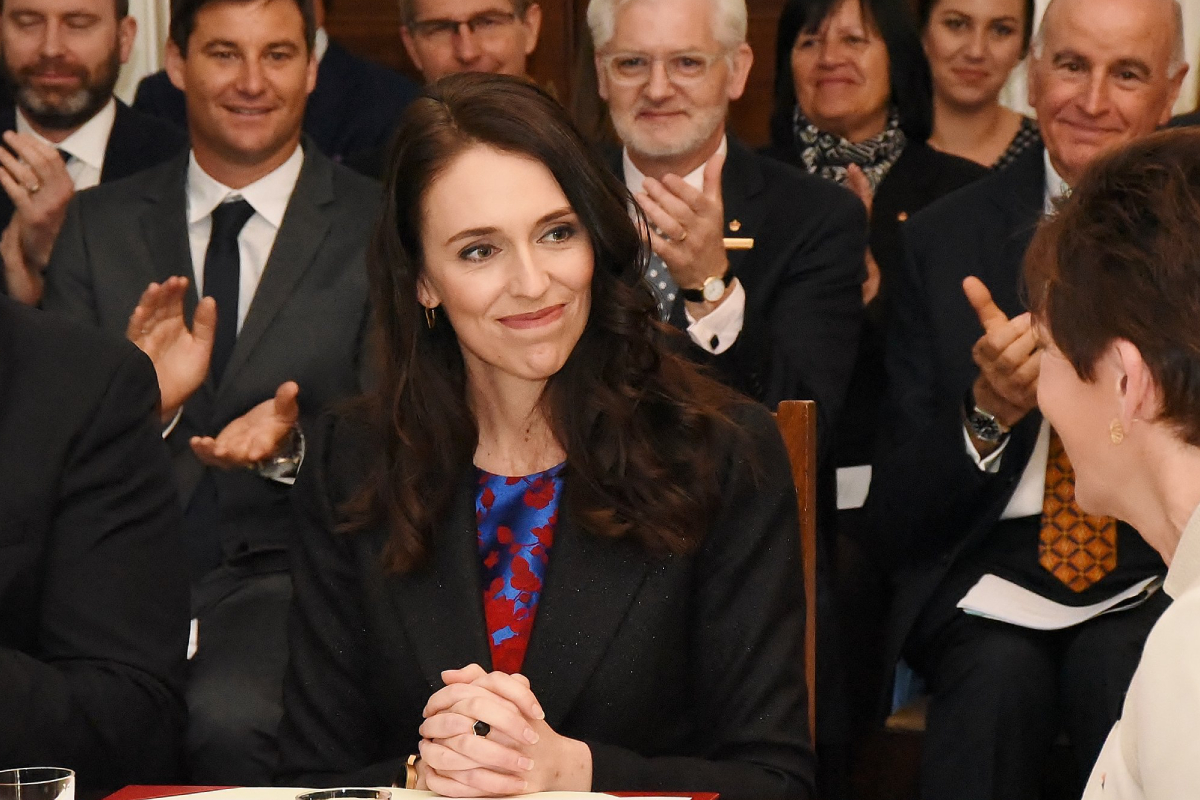
Jacinda Ardern made a surprising announcement. The emotional disclosure highlighted the toll six demanding years in office had taken on her. Labour MPs were set to vote for her successor on Sunday. At the age of 42, Ardern shared that the summer break was spent reflecting on her future, with the hope of rediscovering the passion and energy required for the role. She was scheduled to step down by February 7. In 2017, Ardern became the world’s youngest female head of government at 37, and a year later, she achieved the milestone of being the second elected world leader to give birth while in office, following Pakistan’s Benazir Bhutto in 1990.
9. Death of Henry Kissinger
From May 27, 1923, to November 29, 2023, Henry Alfred Kissinger was an American statesman, political theorist, geopolitical strategist, and public servant. Serving in the capacities of United States Secretary of State and National Security Advisor, he played crucial roles during the administrations of Presidents Richard Nixon and Gerald Ford from 1969 to 1977. He was one of the most influential and controversial figures in American foreign policy, in fact, the architect of US imperialism and global suffering, responsible for countless crimes against humanity and violations of international law. He supported and orchestrated coups, wars, bombings, assassinations, and genocides that killed millions of people, destabilized regions, and fuelled conflicts that persist to this day. He pursued US interests at the expense of human rights, democracy, and justice, and showed no remorse or accountability for his actions. He was, in short, a neo-Colonialist beloved by America’s ruling class.
10. Ukraine-Russia conflict
High expectations were set early in 2023 for a Ukrainian counteroffensive to challenge Russia’s control over eastern Ukraine and potentially Crimea. The much-anticipated counteroffensive commenced in early June, delivering significant losses to Russian forces. However, despite the efforts, the battlelines saw minimal shifts. Russian military preparations during the winter and spring resulted in robust defenses. By early November, Ukraine’s top general acknowledged the fighting had reached a “stalemate,” expressing doubts about a profound breakthrough. Interestingly, Russia had gained more territory throughout the year than Ukraine. Diplomatic discussions shifted to the sustainability of Ukraine in a war of attrition, seemingly tilted in Russia’s favour due to its larger economy and population. Despite devastating losses, Russia doubled its troop presence in Ukraine by the fall of 2023, with the Russian economy geared for war. Western nations, experiencing “Ukraine fatigue,” particularly the United States, faced reluctance to provide additional aid. As calls increased for Ukraine to shift from offense to defense and pursue a ceasefire, uncertainties loomed over whether Russian President Vladimir Putin would agree to halt the fighting. Putin’s perspective, considering potential long-term advantages, raises questions, especially with the upcoming U.S. election in November, which might influence a shift in ties with Ukraine.
11. BRICS Expansion
In August, the BRICS group, consisting of Brazil, Russia, India, China, and South Africa, declared its intention to expand by including six additional nations: Argentina, Egypt, Ethiopia, Iran, Saudi Arabia, and the UAE. This expansion is expected to loosely connect countries that collectively represent approximately 30 per cent of the global GDP and account for 43 per cent of the world’s oil production. The move has sparked speculation among experts about potential future expansions of the BRICS group, further solidifying its influence and reach on the global stage.
12. India-Canada Row
Canadian Prime Minister Justin Trudeau reiterated his claim that Canada had reached out to India regarding the killing of pro-Khalistan terrorist Hardeep Singh Nijjar. Trudeau emphasised Canada’s commitment to the rule of law. This statement followed US State Secretary Antony Blinken’s call for Canada to advance its investigation into Nijjar’s death, with Trudeau stating that Canada sought to uncover the truth in collaboration with allies like the US. The Canada-India relationship has been strained since Trudeau accused the Indian government and its intelligence agency of orchestrating Nijjar’s assassination on Canadian soil in June, leading to a breakdown in trade talks, a reduction in diplomatic staff, and a temporary suspension of visa services by India. India has dismissed the allegations as “absurd.”
13. Anwaar-ul-Haq Kakar
Anwaar-ul-Haq Kakar is the current caretaker Prime Minister of Pakistan, who assumed office in August 2023 after succeeding Shehbaz Sharif. Before this role, he served as the spokesperson of the Government of Balochistan from 2015 to 2017. Kakar was nominated for the position of Caretaker Prime Minister by the outgoing opposition leader and former Prime Minister Shehbaz Sharif. He officially took oath on August 14, 2023, Pakistan’s Independence Day. Kakar resigned from the Senate on the same day, and his resignation was accepted by the Chairman of the Senate, Sadiq Sanjrani. In October 2023, he called for a ceasefire in the Israel–Hamas war, and in November 2023, he condemned the suffering of Palestinian children in Gaza, describing it as an “appalling and atrocious children holocaust” that must stop immediately.


